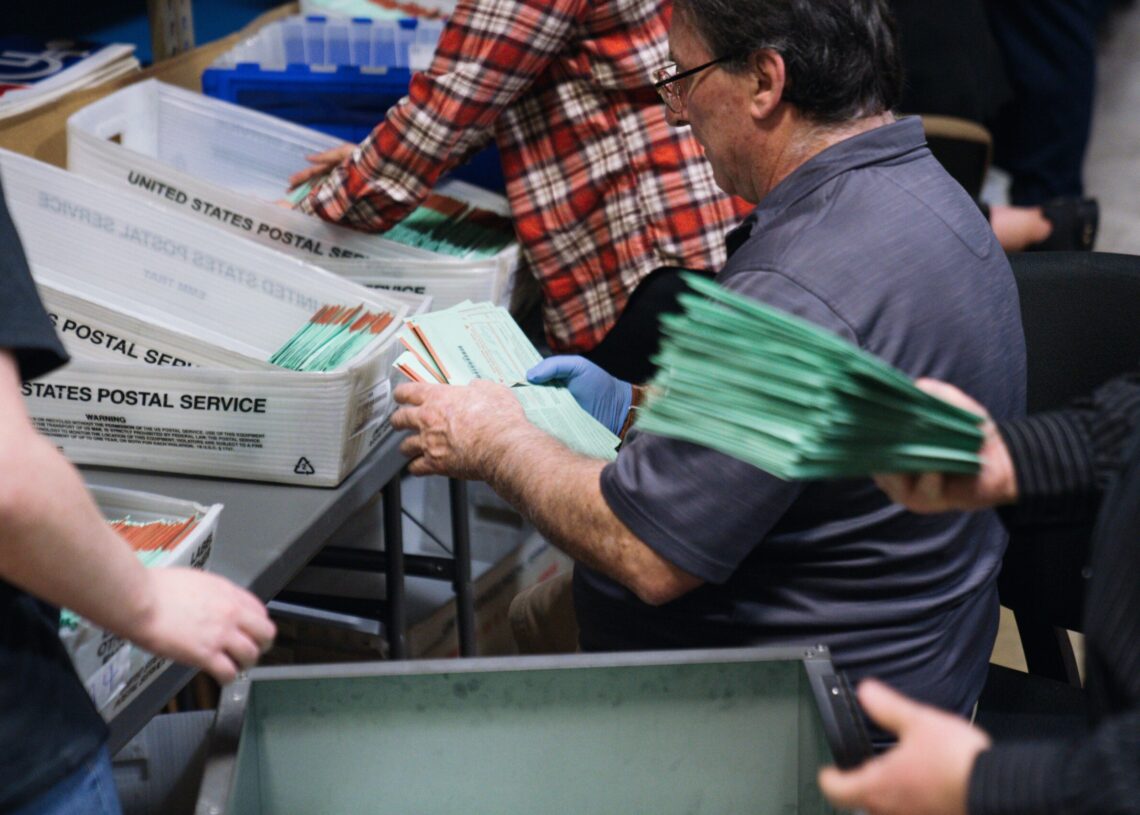The Supreme Court announced Monday it would decide whether laws that allow states to count mail-in ballots that arrive after Election Day are constitutional, a major case that could upend how elections are run in dozens of states before the midterm elections next year.
The state of Mississippi has a law that allows mail-in votes to be counted up to five days after polls close as long as the ballots are postmarked by Election Day. The conservative U.S. Court of Appeals for the 5th Circuit invalidated that law, finding that federal law requires all ballots to be received by Election Day. Mississippi officials want the Supreme Court to reverse that ruling.
The Supreme Court announced Monday it would decide whether laws that allow states to count mail-in ballots that arrive after Election Day are constitutional, a major case that could upend how elections are run in dozens of states before the midterm elections next year.
The state of Mississippi has a law that allows mail-in votes to be counted up to five days after polls close as long as the ballots are postmarked by Election Day. The conservative U.S. Court of Appeals for the 5th Circuit invalidated that law, finding that federal law requires all ballots to be received by Election Day. Mississippi officials want the Supreme Court to reverse that ruling.
“The rule the Fifth Circuit adopted would require scrapping election laws in most States,” Mississippi wrote in its brief urging the Supreme Court to take the case. “About 30 States and the District of Columbia accept some ballots that are mailed by election day but received after that day. The decision … thus invites nationwide litigation against laws in most States — risking chaos in the next federal elections.”
The court has yet to schedule arguments in the case, but any ruling would probably come by June or July — enough time to influence the midterm elections next November and perhaps other contests.
The Republican National Committee, the Mississippi Republican Party, the Libertarian Party of Mississippi and a Mississippi voter challenged the state’s mail-in ballot law in 2024 in lawsuits. They contended that federal Election Day statutes require ballots to be received by state officials by Election Day.
“For more than 150 years after the enactment of the first election-day statute, States complied with Congress’ mandate by ensuring that the ballot box closed on the federally mandated election day,” the Republican National Committee wrote in its brief to the Supreme Court. “With rare outliers, the States mandated that ballots must be received by election officials by election day. But recently, an increasing number of States — including Mississippi — have deviated from that practice by permitting at least some ballots to be received after election day.”
A federal judge granted a summary judgment to the state of Mississippi, but that was reversed by the 5th Circuit on appeal.
President Donald Trump and his allies have claimed without evidence that mail-in voting is riddled with fraud. Some have launched legal efforts to challenge mail-in voting, particularly in states led by Democrats.
In a separate case this term, the justices are deciding whether a congressman from Illinois and others can go forward with a lawsuit challenging the state’s policy of counting mail-in ballots that arrive after Election Day. Most justices appeared skeptical during arguments last month about Republican Mike Bost’s contention that he had standing to sue, or had suffered sufficient harm necessary to bring legal action, simply because he was a candidate on the Illinois ballot.
The justices also seemed open to limiting the use of race in drawing election maps in another major elections-related case this term.
The post Supreme Court to decide if mail-in ballots may arrive after Election Day
appeared first on Washington Post.




